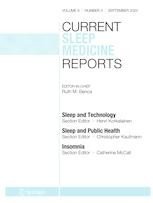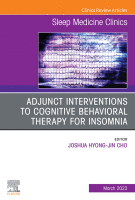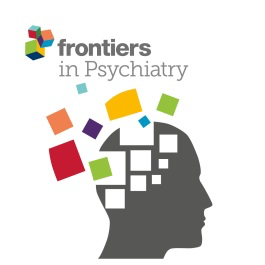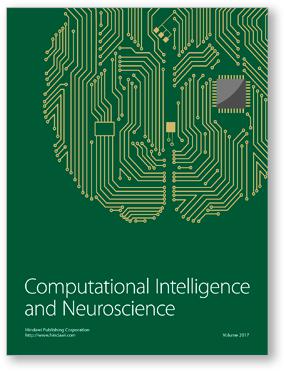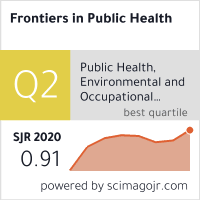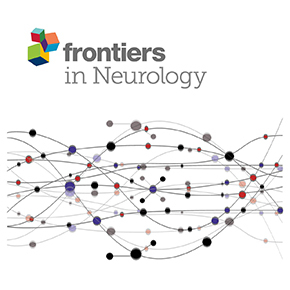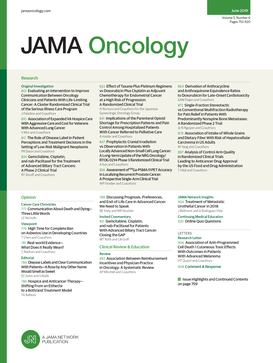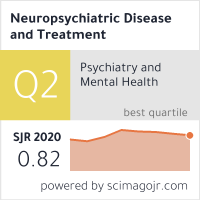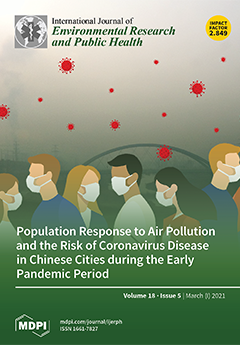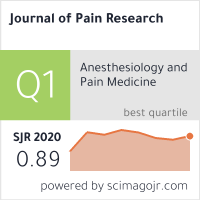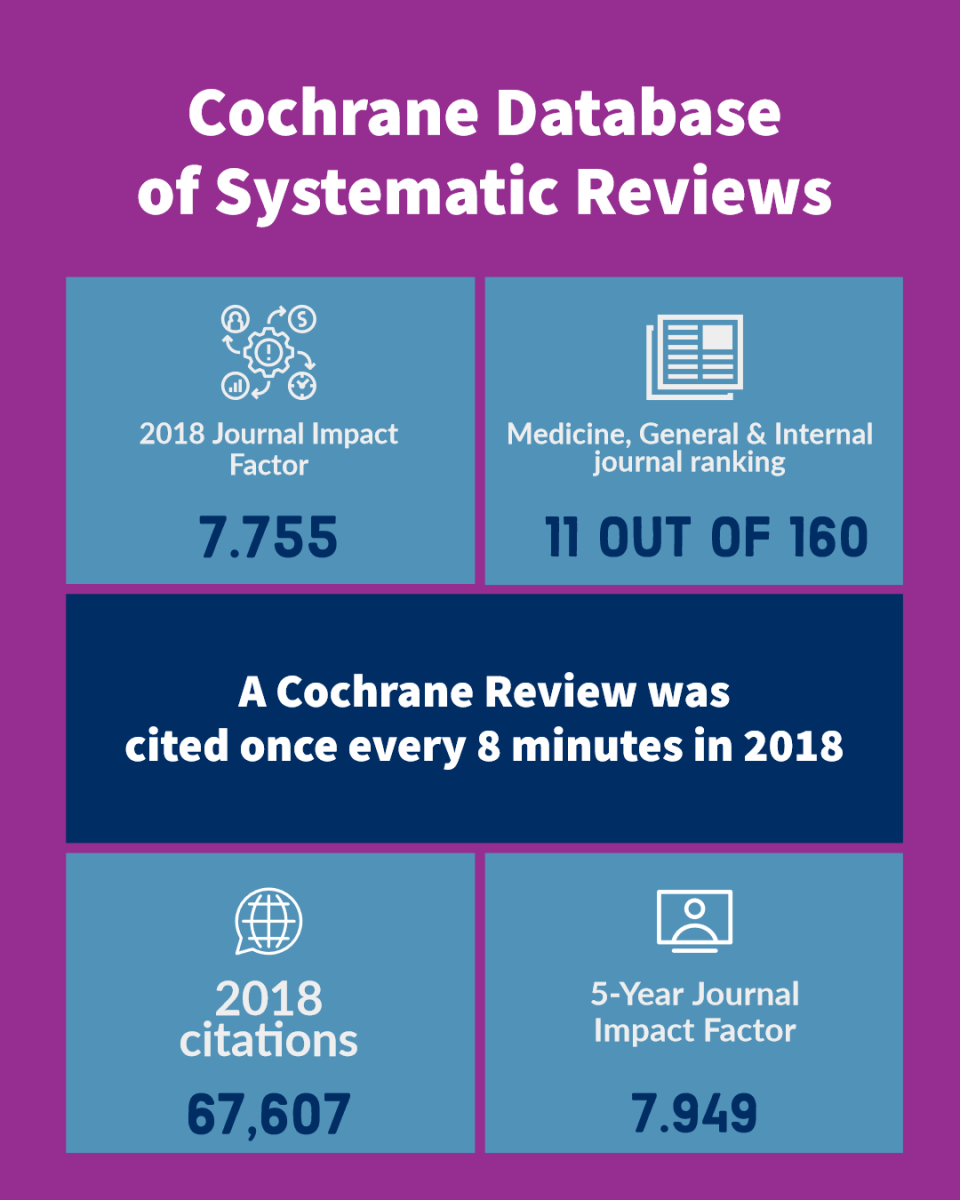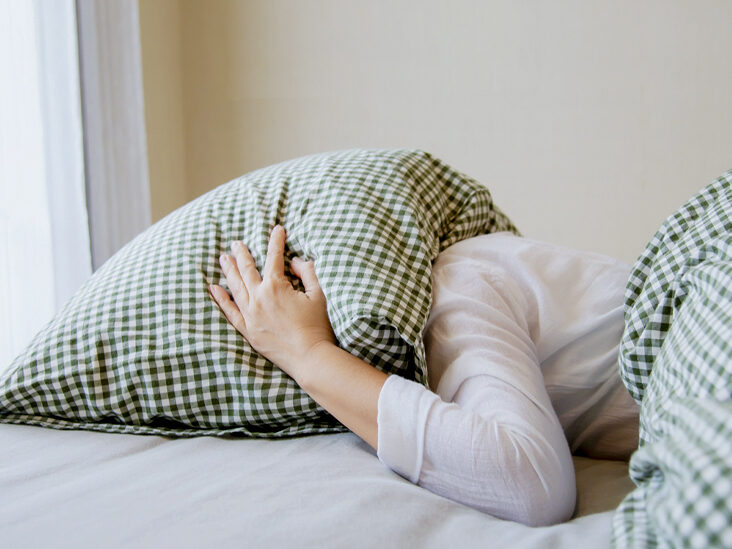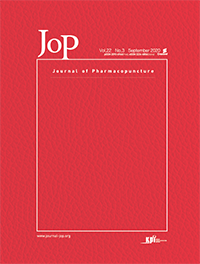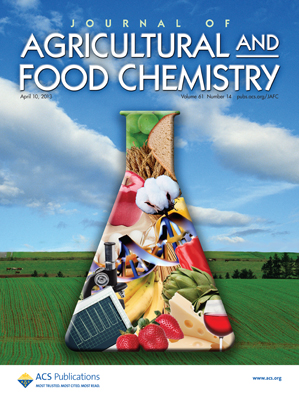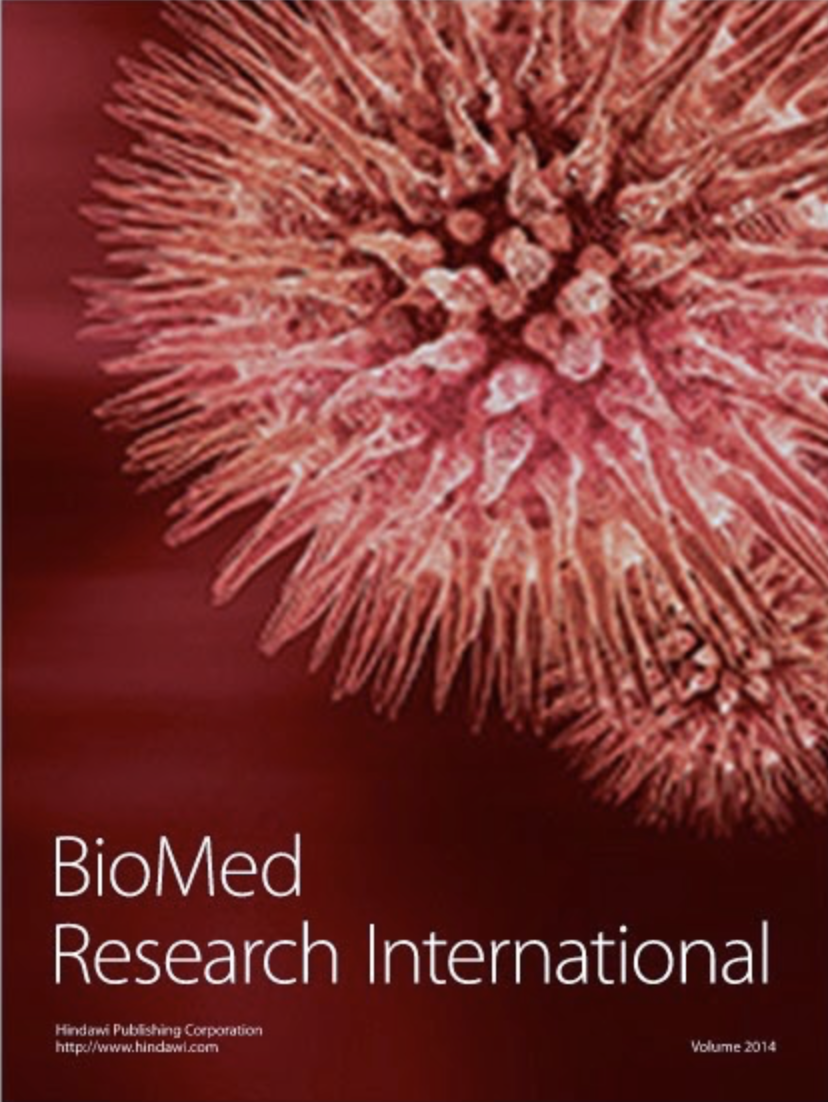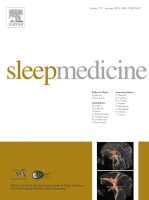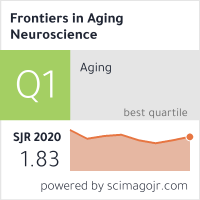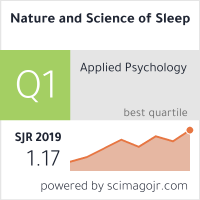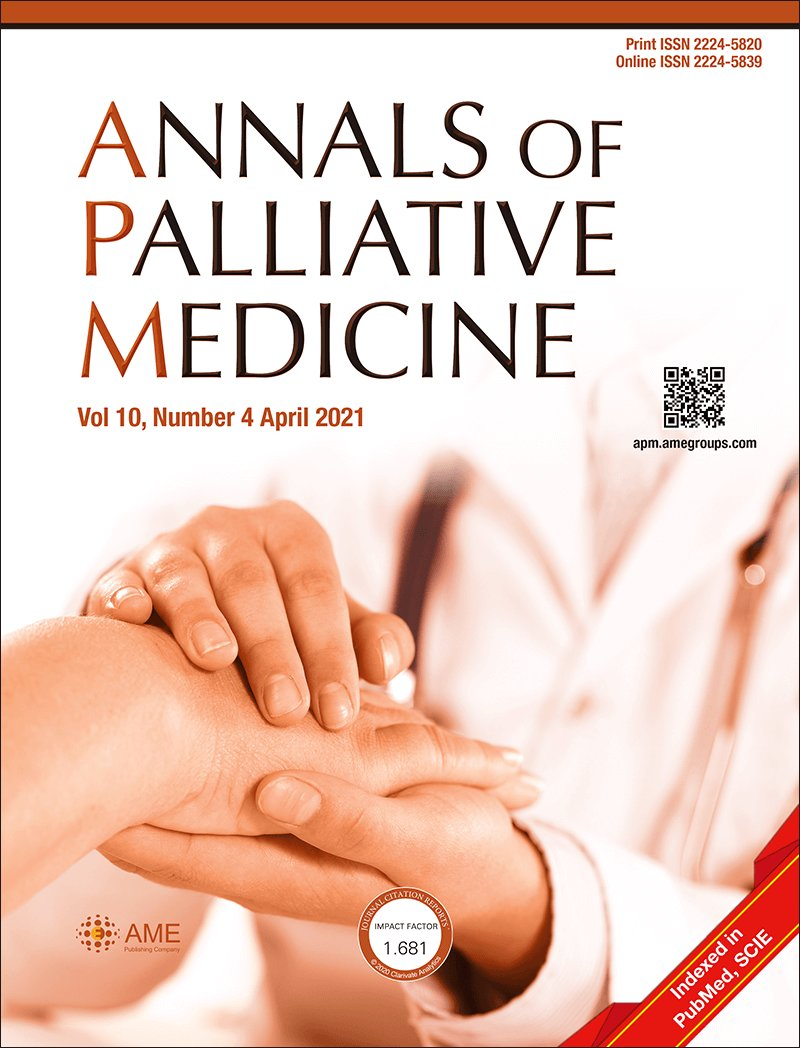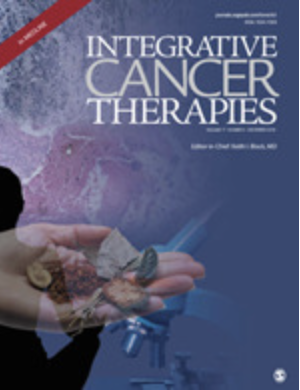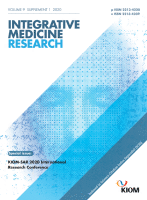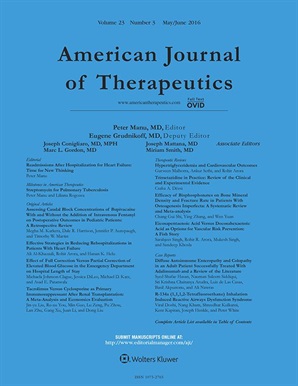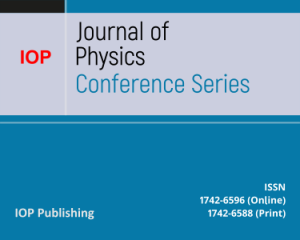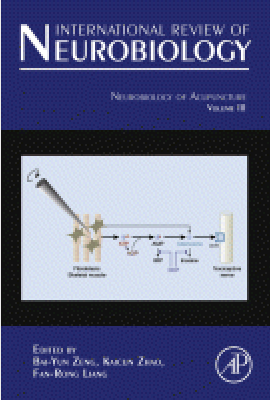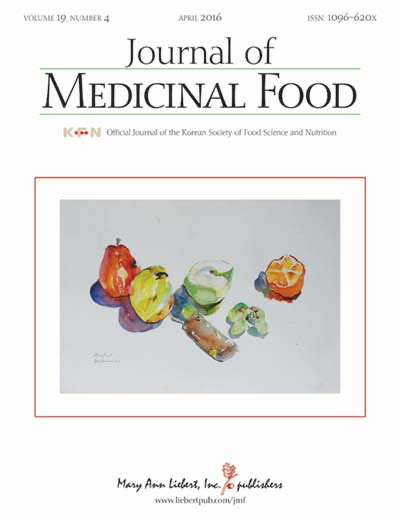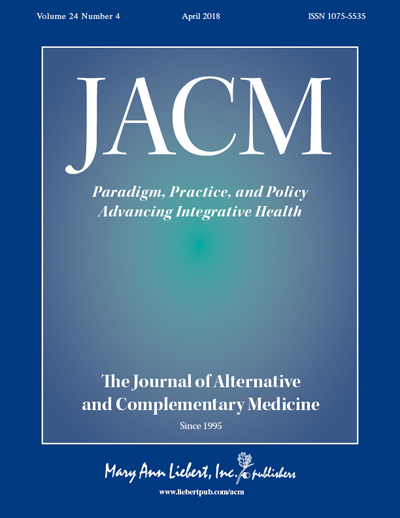Presentation Slides
Chinese Medicine Research Hub
Cohort Study
Long-term consumption of green tea can potentially lessen the risk of depression in postmenopausal women by decreasing inflammation and boosting estradiol levels.
2023 Nutrients Long-Term Consumption of Green Tea Can Reduce the Degree of Depression in Postmenopausal Women by Increasing Estradiol
Wan Z, Qin X, Tian Y, Ouyang F, Wang G, Wan Q
Chinese Medicine Research Hub
Systematic Review
There is evidence to support significant improvements to total sleep time and sleep efficiency with the ingestion of tart cherries.
2023 Current Sleep Medicine Reports Too Sour to be True? Tart Cherries (Prunus cerasus) and Sleep: a Systematic Review and Meta-analysis
Stretton B, Eranki A, Kovoor J, Bacchi S, Gupta A, Maddern G, Boyd M
Chinese Medicine Research Hub
Theoretical Article
Acupuncture may enhance the effectiveness of cognitive-behavioral therapy for people suffering from insomnia and related conditions.
2023 Sleep Medicine Clinics Acupuncture as an Adjunct Treatment to Cognitive-Behavioral Therapy for Insomnia
Kutana S, Mao JJ, Garland SN
Chinese Medicine Research Hub
Systematic Review
Acupuncture, especially TEAS, is safer and more effective than medication for improving sleep quality in cancer related insomnia
2023 Frontiers in Psychiatry Acupuncture and moxibustion in patients with cancer-related insomnia: A systematic review and network meta-analysis
Ou Y, Lin D, Ni X, Li S, Wu K, Yuan L, Rong J, Feng C, Liu J, Yu Y, Wang X, Wang L, Tang Z, Zhao L
Chinese Medicine Research Hub
Systematic Review
Acupuncture and Moxibustion Show Promise for Chronic Renal Insufficiency
2023 Frontiers in Psychiatry Acupuncture and moxibustion in patients with cancer-related insomnia: A systematic review and network meta-analysis
Ou Y, Lin D, Ni X, Li S, Wu K, Yuan L, Rong J, Feng C, Liu J, Yu Y, Wang X, Wang L, Tang Z, Zhao L
Chinese Medicine Research Hub
Randomised Controlled Trial
Acupuncture can improve both perimenopausal depression and insomnia with short-medium term effects while being a safe treatment.
2023 Frontiers in Public Health Acupuncture for comorbid depression and insomnia in perimenopause: A feasibility patient-assessor-blinded, randomized, and sham-controlled clinical trial
Zhao FY, Zheng Z, Fu QQ, Conduit R, Xu H, Wang HR, Huang YL, Jiang T, Zhang WJ, Kennedy GA
Chinese Medicine Research Hub
Systematic Review
Acupuncture shows positive effects on cancer-related issues; research calls for further exploration of acupuncture's efficacy and safety, especially for conditions like depression, offering further potential support for cancer survivors
2022 Phytomedicine Acupuncture for cancer-related conditions: An overview of systematic reviews
Zhang X, Hou W, Pu F, Wang X, Wang Y, Yang M, Cheng K, Wang Y, Robinson N, Liu J
Chinese Medicine Research Hub
Meta-Analysis
Acupuncture using Lingguibafa acupoint selection shows notable improvements in various sleep parameters for individuals suffering from insomnia.
2022 Medicine The efficacy of acupuncture with Lingguibafa acupoint selection in the treatment of insomnia: A PRISMA-compliant meta-analysis
Ji H, Zhang K, Lu Y, Kong X, Ma X
Chinese Medicine Research Hub
Systematic Review
Meta-analysis of TCM non-drug treatments like acupuncture and massage improved primary insomnia, reducing PSQI scores, and easing anxiety and depression.
2022 Computational Intelligence and Neuroscience Observation on the Clinical Efficacy of Traditional Chinese Medicine Non-Drug Therapy in the Treatment of Insomnia: A Systematic Review and Meta-Analysis Based on Computer Artificial Intelligence System
Zhuang J, Wu J, Fan L, Liang C
Chinese Medicine Research Hub
Systematic Review
Complementary therapies are generally effective and safe in treating insomnia with acupuncture being the most frequently effective form, often yielding results superior to western medicine, sham/placebo, and no treatment.
2022 Journal of Pharmacopuncture Effectiveness of Acupuncture, Mind and Body Practices, and Natural Products for Insomnia: an overview of systematic reviews
Yeo JJ, Lee JW, Kim KS, Hyun MK
Chinese Medicine Research Hub
Systematic Review
Taijiquan significantly improves sleep quality in individuals suffering from insomnia, suggesting that Taijiquan offers a safe and effective intervention for addressing sleep-related issues.
2022 Frontiers in Psychiatry Effectiveness of Taijiquan in treating insomnia: A systematic review and meta-analysis of randomized controlled studies
Han D, Cheng J, Qu J, Wen X, Liu X, Chen Y, Wen Y, Liu Z, Liu H, Huang Y
Chinese Medicine Research Hub
Review Article
Jujube nutrients may offer potential therapeutic benefits including antioxidant, antibacterial, anti-inflammatory functions, and improving sleep quality and learning.
2022 Journal of Agricultural and Food Chemistry Wild Jujube (Ziziphus jujuba var. spinosa): A Review of Its Phytonutrients, Health Benefits, Metabolism, and Applications
Hua Y, Xu X, Guo S, Xie H, Yan H, Ma X, Niu Y, Duan JA
Chinese Medicine Research Hub
Systematic Review
Traditional Chinese Medicine may play a significant role in alleviating symptoms of chronic insomnia in elderly patients.
2022 BioMed Research International The Role and Clinical Observation of Traditional Chinese Medicine in Relieving Senile Insomnia: A Systematic Review and Meta-Analysis
Luan X, Zhang X, Zhou Y
Chinese Medicine Research Hub
Systematic Review
Multiple acupuncture therapies, particularly acupoints catgut embedding, auricular acupressure + manual acupuncture, and electroacupuncture + acupoint application, significantly improve insomnia symptoms.
2022 Sleep Medicine Comparative effectiveness of multiple acupuncture therapies for primary insomnia: a systematic review and network meta-analysis of randomized trial
Lu Y, Zhu H, Wang Q, Tian C, Lai H, Hou L, Liu Y, Gao Y, Liu M, Yang F, Ni X, Lin L, Niu J, Tian J, Ge L
Chinese Medicine Research Hub
Systematic Review
Acupuncture can be a safe and effective alternative therapy to conventional drugs for improving sleep quality and relieving symptoms in patients with active depression.
2022 Frontiers in Psychiatry The Role of Acupuncture in the Management of Insomnia as a Major or Residual Symptom Among Patients With Active or Previous Depression: A Systematic Review and Meta-Analysis
Zhao FY, Kennedy GA, Spencer SJ, Conduit R, Zhang WJ, Fu QQ, Zheng Z
Chinese Medicine Research Hub
Systematic Review
High prevalence of insomnia, anxiety, and depression among perimenopausal women, emphasizing the importance of exploring acupuncture as a potential green therapy for effectively addressing these interconnected issues.
2022 Medicine Can acupuncture improve sleep quality and anxiety among women during perimenopause?
Ping Y, Liang C, Fan X, Zhang L, Ying D, Wang Z
Chinese Medicine Research Hub
Cohort Study
Stroke patients who received acupuncture had a lesser risk of insomnia across various demographic and medical variables.
2021 Frontiers in Aging Neuroscience Acupuncture Reduced the Risk for Insomnia in Stroke Patients: A Propensity-Score Matched Cohort Study
Qiu X, Han NS, Yao JX, Yu FR, Lin YY, Zhuang X
Chinese Medicine Research Hub
Randomised Controlled Trial
Lavandula angustifolia essential oil inhalation seemed to enhance overall sleep patterns, quality, and efficiency in postmenopausal women with insomnia.
2021 Complementary Therapies in Medicine Lavender essential oil on postmenopausal women with insomnia: Double-blind randomized trial
dos Reis Lucena L, dos Santos-Junior JG, Tufik S, Hachul H
Chinese Medicine Research Hub
Systematic Review
The comprehensive evaluation results show that scalp acupuncture is effective in treating insomnia.
2021 Evidence-Based Complementary and Alternative Medicine Efficacy and Safety of Scalp Acupuncture for Insomnia: A Systematic Review and Meta-Analysis
Fu-gui Liu, Ai-hua Tan, Chao-qun Peng, Yun-xia Tan, Ming-chao Yao
Chinese Medicine Research Hub
Systematic Review
Acupuncture improves perimenopausal sleep quality and symptoms, potentially a safe alternative or adjunct to hypnotic drugs, requiring further research validation.
2021 Evidence-Based Complementary and Alternative Medicine Comparative Utility of Acupuncture and Western Medication in the Management of Perimenopausal Insomnia: A Systematic Review and Meta-Analysis
Zhao, F.-Y., Fu, Q.-Q., Kennedy, G. A., Conduit, R., Wu, W.-Z., Zhang, W.-J., & Zheng, Z.
Chinese Medicine Research Hub
Randomised Controlled Trial
Ten sessions of electroacupuncture can improve the sleep quality of patients with insomnia without serious adverse effects.
2020 Nature and Science of Sleep Efficacy and Safety of Electroacupuncture for Insomnia Disorder: A Multicenter, Randomized, Assessor-Blinded, Controlled Trial
Lee B, Kim BK, Kim HJ, Jung IC, Kim AR, Park HJ, Kwon OJ, Lee JH, Kim JH.
Chinese Medicine Research Hub
Treatments according to traditional Chinese medicine syndrome differentiation can provide patients with individualized treatments for chronic fatigue syndrome.
2020 Evidence-Based Complementary and Alternative Medicine Advances in Clinical Research on Traditional Chinese Medicine Treatment of Chronic Fatigue Syndrome
Zhang X, Wang M, Zhou S
Chinese Medicine Research Hub
Systematic Review
Acupuncture was superior to sham/placebo acupuncture in treating insomnia.
2020 Complementary Therapies in Medicine The effects of acupuncture versus sham/placebo acupuncture for insomnia: A systematic review and meta-analysis of randomized controlled trials
Zhang J, He Y, Huang X, Liu Y, Yu H
Chinese Medicine Research Hub
Randomised Controlled Trial
Acupuncture was shown to significantly improve the sleep quality in pregnant women, possibly through increasing melatonin secretion.
2020 Nature and Science of Sleep Effect of Acupuncture on Pregnancy-Related Insomnia and Melatonin: A Single-Blinded, Randomized, Placebo-Controlled Trial
Foroughinia S, Hessami K, Asadi N, Foroughinia L, Hadianfard M, Hajihosseini A, Pirasteh N, Vossoughi M, Vafaei H, Faraji A, Kasraeian M, Doroudchi M, Rafiee Monjezi M, Roozmeh S, Bazrafshan K.
Chinese Medicine Research Hub
Systematic Review
Green tea, containing antioxidative catechins, may possess some beneficial effects in reducing the risk of specific types of cancer.
2020 Cochrane Database of Systematic Reviews Green tea (Camellia sinensis) for the prevention of cancer
Filippini T, Malavolti M, Borrelli F, Izzo AA, Fairweather-Tait SJ, Horneber M, Vinceti M
Chinese Medicine Research Hub
Systematic Review
Acupuncture treatment of insomnia is efficacious, not because of its placebo effect.
2020 Annals of Palliative Medicine Placebo effect of acupuncture on insomnia: a systematic review and meta-analysis
Liu C, Xi H, Wu W, Wang X, Qin S, Zhao Y, Zheng S, Wan Q, Xu L.
Chinese Medicine Research Hub
Clinical Study
Tian Wang Bu Xin Dan can potentially alleviate symptoms of cancer-related insomnia similarly to cognitive-behavioral therapy.
2020 Integrative Cancer Therapies Comparative Effectiveness of Cheonwangbosimdan (Tian Wang Bu Xin Dan) Versus Cognitive-Behavioral Therapy for Insomnia in Cancer Patients: A Randomized, Controlled, Open-Label, Parallel-Group, Pilot Trial
Moon SY, Jerng UM, Kwon OJ, Jung SY, Lee JY, Yoon SW, Shin WC, Byun JI, Lee JH
Chinese Medicine Research Hub
Systematic Review
Acupuncture using pattern identification led to significantly improved total effectiveness rate compared to medication for insomnia.
2019 Integrative Medicine Research Acupuncture using pattern-identification for the treatment of insomnia disorder: a systematic review and meta-analysis of randomized controlled trials
Kim SH, Jeong JH, Lim JH, Kim BK
Chinese Medicine Research Hub
Systematic Review
Acupuncture therapy is an effective and safe treatment for chronic pain-related insomnia.
2019 Evidence-Based Complementary and Alternative Medicine Acupuncture for Chronic Pain-Related Insomnia: A Systematic Review and Meta-Analysis
Fushui Liu, Jianyu You, Qi Li, Ting Fang, Mei Chen, Nana Tang, Xiaojun Yan
Chinese Medicine Research Hub
Meta-Analysis
Chamomile has demonstrative positive effects on generalized anxiety disorders and sleep quality, but exhibits minimal impact on state anxiety and insomnia.
2019 Phytotherapy Research Therapeutic efficacy and safety of chamomile for state anxiety, generalized anxiety disorder, insomnia, and sleep quality: A systematic review and meta‐analysis of randomized trials and quasi‐randomized trials
Hieu TH, Dibas M, Surya Dila KA, Sherif NA, Hashmi MU, Mahmoud M, Trang NTT, Abdullah L, Nghia TLB, Y MN, Hirayama K, Huy NT
Chinese Medicine Research Hub
Randomised Controlled Trial
Cherry juice increases sleep time and efficiency in older adults with insomnia, potentially due to its inhibition of a process that degrades tryptophan and stimulates inflammation.
2018 American Journal of Therapeutics Pilot Study of the Tart Cherry Juice for the Treatment of Insomnia and Investigation of Mechanisms
Losso JN, Finley JW, Karki N, Liu AG, Prudente A, Tipton R, Yu Y, Greenway FL
Chinese Medicine Research Hub
Systematic Review
Acupuncture might have effect in decreasing the number of micturition episodes, incontinence episodes, and nocturia episodes.
2018 Medicine Acupuncture for adults with overactive bladder: A systematic review and meta-analysis of randomized controlled trials
Zhao Y, Zhou J, Mo Q, Wang Y, Yu J, Liu Z.
Chinese Medicine Research Hub
Randomised Controlled Trial
Acupuncture treatment effectively improved the quality of sleep and the quality of life for chronic hemodialysis patients.
2017 Journal of Physics Conference Series The effect of acupuncture treatment for insomnia in chronic hemodialysis patients
J A Widjaja, C Simadibrata, A Srilestari, M B H Marbun
Chinese Medicine Research Hub
Randomised Controlled Trial
Kiwifruit consumption before bedtime significantly improves sleep quality and daytime function in individuals with chronic insomnia in comparison to pear consumption.
2017 Sleep and Biological Rhythms The effects of kiwi fruit consumption in students with chronic insomnia symptoms: a randomized controlled trial
Nødtvedt O, Hansen AL, Bjorvatn B, Pallesen S
Chinese Medicine Research Hub
Systematic Review
Our results suggest that acupuncture could be effective for treating insomnia after stroke.
2016 BMC Complementary Medicine and Therapies Acupuncture for insomnia after stroke: a systematic review and meta-analysis
Lee SH, Lim SM
Chinese Medicine Research Hub
Systematic Review
Acupuncture compared to sham/placebo and pharmacotherapy showed statistically significant results for insomnia.
2016 Complementary Therapies in Medicine A systematic review of acupuncture for sleep quality in people with insomnia
Shergis JL, Ni X, Jackson ML, Zhang AL, Guo X, Li Y, Lu C, Xue CC
Chinese Medicine Research Hub
Systematic Review
There is a low level of evidence that acupuncture may be superior to sham acupuncture, drugs or hormone therapy for managing cancer-related insomnia.
2016 Integrative Cancer Therapies Acupuncture for Managing Cancer-Related Insomnia: A Systematic Review of Randomized Clinical Trials
Choi TY, Kim JI, Lim HJ, Lee MS.
Chinese Medicine Research Hub
Systematic Review
Chinese herbal medicine was superior to placebo and benzodiazepine drugs and was superior to benzodiazepines and psychotherapy alone as an adjunct therapy in terms of subjective sleep quality and quantity and safety.
2015 Sleep Medicine Updated clinical evidence of Chinese herbal medicine for insomnia: a systematic review and meta-analysis of randomized controlled trials
Xiaojia Ni, Johannah Linda Shergis, Xinfeng Guo, Anthony Lin Zhang, Yan Li, Chuanjian Lu, Charlie Changli Xue
Chinese Medicine Research Hub
Systematic Review
The clinical efficacy of acupuncture appeared to be supported by evidence obtained from basic neuroendocrinological studies.
2013 International Review of Neurobiology Acupuncture for the treatment of insomnia
Kaicun Zhao
Chinese Medicine Research Hub
Randomised Controlled Trial
Tart cherry juice blend yielded modest improvements in sleep for older adults with insomnia, exhibiting effects similar to or better than natural products like valerian and melatonin.
2010 Journal of Medicinal Food Effects of a Tart Cherry Juice Beverage on the Sleep of Older Adults with Insomnia: A Pilot Study
Pigeon WR, Carr M, Gorman C, Perlis ML
Chinese Medicine Research Hub
Systematic Review
Clinical studies have shown that acupuncture may have a beneficial effect on insomnia compared with Western medication.
2009 The Journal of Alternative and Complementary Medicine Acupuncture for Treatment of Insomnia: A Systematic Review of Randomized Controlled Trials
Cao H, Pan X, Li H, Liu J.
Executive Summary
Write an executive summary in the form of a blog article on the topic of "Research into Chinese medicine treatment for Insomnia" summarising the research below and using language that can be easily understood by patients and avoiding medical jargon using a professional and caring tone of voice.
Write an executive summary in the form of a blog article on the topic of "Researched Chinese medicine treatments for Insomnia" summarising the research below in an objective and easy to understand way, and using language that can be easily understood by patients. Group the article into Chinese medicine treatments first, followed by nutrition and other treatments. Avoid using medical jargon and use a professional and caring tone of voice.
Write me a concise but easy to understand executive summary on the topic of "Chinese medicine treatments for Insomnia" based on the following research that I will give you. Your summary should be 2 paragraphs long in Australian English spelling and include references to the studies.
A Cohort Study published in 2023 in the journal Nutrients found that Long-term consumption of green tea can potentially lessen the risk of depression in postmenopausal women by decreasing inflammation and boosting estradiol levels. In the study, researchers performed an analysis on a tea-producing village, incorporating 386 postmenopausal women in the investigation, who participated either as green tea consumers or non-drinkers (control group). The level of estradiol, inflammation markers, sleep quality, and depression symptoms were measured to uncover any correlations.
The results reflected significant disparities between the tea-drinking and control groups in terms of depression and insomnia levels, BMI, inflammation levels, and estradiol quantities. By appraising these outcomes, it was found that green tea intake could quell the likelihood of depression via its impact on sleep, inflammation, and estradiol levels. The risk of depression was consequently seen as reduced among postmenopausal women engaging in regular consumption of green tea.
A Systematic Review published in 2023 in the journal Current Sleep Medicine Reports found that There is evidence to support significant improvements to total sleep time and sleep efficiency with the ingestion of tart cherries. We identified a total of 277 unique records, from which 8 studies of low-moderate methodological quality were included in the systematic review. Meta-analysis of subjectively recalled sleep efficiency (SE) and total sleep time (TST) were not significant. Objective SE, however, was significantly higher in the cherry cohort when compared to placebo with an effect size of 0.63 (95% CI 0.29–0.97, P < 0.01). There was low associated heterogeneity (I2 = 0%). Objective TST was significantly higher in the cherry cohorts, with a pooled effect size of 1.21 (95% CI 0.83–1.58, P < 0.01). There was high associated heterogeneity (I2 = 81.5%).
A Theoretical Article published in 2023 in the journal Sleep Medicine Clinics found that Acupuncture may enhance the effectiveness of cognitive-behavioral therapy for people suffering from insomnia and related conditions. The research methodology used in this paper is mainly a theoretical analysis and discussion of the potential synergistic effects of combining cognitive-behavioral therapy for insomnia (CBT-I) and acupuncture. This involves analysis of the current evidence base for the efficacy of acupuncture in treating insomnia and related conditions, along with examination of the practical, logistical, and regulatory aspects of combining these two treatments.
In the discussion of their results, the researchers found that there is a growing body of evidence that supports the potential benefit of acupuncture in treating insomnia and its comorbidities, enhancing the current standard treatment approach of CBT-I. This appears to be an innovative approach that could potentially enhance the treatment effectiveness and outcomes for those struggling with insomnia, though it concurrently raises complex issues in terms of its practical and regulatory implementation.
A Systematic Review published in 2023 in the journal Frontiers in Psychiatry found that Acupuncture, especially TEAS, is safer and more effective than medication for improving sleep quality in cancer related insomnia Acupuncture methods like transcutaneous electrical acupuncture stimulation (TEAS) and acupuncture+moxibustion were better for sleep than medication. Acupuncture had fewer side effects than medication with positive impact on canner-related insomnia linked to factors like melatonin regulation. Amongst all treatment types, TEAS was probably the more effective.
A Systematic Review published in 2023 in the journal Frontiers in Psychiatry found that Acupuncture and Moxibustion Show Promise for Chronic Renal Insufficiency Acupuncture and moxibustion emerge as effective and safe interventions for chronic renal insufficiency, with Transcutaneous Electrical Acupuncture Stimulation showing the highest potential for efficacy.
A Randomised Controlled Trial published in 2023 in the journal Frontiers in Public Health found that Acupuncture can improve both perimenopausal depression and insomnia with short-medium term effects while being a safe treatment. The experiment involved seventy eligible participants who were randomly assigned to either a real-acupuncture (RA) or a sham-acupuncture (SA) group. They were given 17 sessions of either RA or SA treatments over an 8-week timeframe. The primary outcomes for mood and sleep were evaluated using the 17-item Hamilton Depression Rating Scale and the Pittsburgh Sleep Quality Index scores. Secondary outcomes included an evaluation of anxiety symptoms, perimenopausal symptoms, and quality of life. Also, participants' experiences and overall satisfaction with treatment were assessed. Blood samples were collected as well to measure reproductive hormone levels.
Reports indicate that 65 participants completed all treatment sessions while 54 and 41 participants completed the 8-week and 16-week follow-ups respectively. The results showed the RA group to have a bigger reduction of Pittsburgh Sleep Quality Index scores at post-treatment and 8-week follow-up compared to the sham-acupuncture group. Although, the change in the Hamilton Depression Rating Scale scores for the RA group wasn’t significantly different from the sham group. There were no significant mean differences for the Hamilton Depression Rating Scale or the Pittsburgh Sleep Quality Index between the two groups from the beginning to the 16th-week follow-up, nor were any differences noted in serum reproductive hormone levels among the groups. No major adverse events were reported.
A Systematic Review published in 2022 in the journal Phytomedicine found that Acupuncture shows positive effects on cancer-related issues; research calls for further exploration of acupuncture's efficacy and safety, especially for conditions like depression, offering further potential support for cancer survivors This review summarizes evidence from 51 systematic reviews on acupuncture for cancer-related conditions. Acupuncture was found to have positive effects on various conditions such as cancer-related pain, fatigue, insomnia, nausea, and more. The methodological quality of the reviews was generally low, and some biases were identified. Acupuncture was considered safe, with only mild adverse events reported. In clinical practice, acupuncture can be a beneficial option for cancer survivors for certain conditions.
A Meta-Analysis published in 2022 in the journal Medicine found that Acupuncture using Lingguibafa acupoint selection shows notable improvements in various sleep parameters for individuals suffering from insomnia. The study conducted an extensive systematic search through multiple databases such as PubMed, Web of Science, Embase, and more for randomized controlled trials that compared Lingguibafa acupoint selection acupuncture with dialectical acupoint selection acupuncture in treating insomnia. Two independent review authors extracted data and assessed each trial's quality. A meta-analysis was subsequently performed using random-effects models to calculate relative risks and weighted mean differences for categorical and continuous variables respectively.
The inclusion of seven trials involving 468 patients showed that acupuncture with Lingguibafa acupoint selection either alone or combined with dialectical acupoint selection resulted in significant improvements in multiple sleep parameters, notably the Pittsburgh Sleep Quality Index score. There were also substantial improvements in sleep quality, latency, and daytime function. However, it had no significant effect in treating sleep disorder and dependence on hypnotic drugs. While the overall total effectiveness rate was higher in the Lingguibafa acupoint selection group, the conclusion was deemed less credible due to the poor methodological quality across the trials.
A Systematic Review published in 2022 in the journal Computational Intelligence and Neuroscience found that Meta-analysis of TCM non-drug treatments like acupuncture and massage improved primary insomnia, reducing PSQI scores, and easing anxiety and depression. The effectiveness of Traditional Chinese Medicine (TCM) non-drug therapies (acupuncture, moxibustion, massage, and auricular point pressing) were evaluated in treating primary insomnia. Results showed that TCM non-drug therapies significantly improved the PSQI score in insomnia patients, with a higher effective rate compared to the control groups. These therapies also demonstrated improvements in anxiety and depression.
A Systematic Review published in 2022 in the journal Journal of Pharmacopuncture found that Complementary therapies are generally effective and safe in treating insomnia with acupuncture being the most frequently effective form, often yielding results superior to western medicine, sham/placebo, and no treatment. The researchers conducted an extensive literature search using six different databases to gather systematic reviews and meta-analyses on the effectiveness and safety of complementary therapies for insomnia. Among the surveyed data, 30 systematic reviews/meta-analyses were chosen for the overview. An analysis using the PSQI was performed involving a significant number of randomized controlled trials and participants.
The results confirm that complementary therapies had a positive impact on the PSQI scores in insomnia patients. Most of the reviews and meta-analyses reported positive results, with acupuncture being the most frequently effective form, often yielding results superior to western medicine, sham/placebo, and no treatment. However, the study discusses the presence of some methodological and reporting quality deficiencies in the systematic reviews and meta-analyses due to a lack of protocol registration and exclusions in study lists.
A Systematic Review published in 2022 in the journal Frontiers in Psychiatry found that Taijiquan significantly improves sleep quality in individuals suffering from insomnia, suggesting that Taijiquan offers a safe and effective intervention for addressing sleep-related issues. Taijiquan (Tai Chi) was found to be beneficial for improving insomnia, especially when compared to no treatment, simple exercise, or health education alone. Subgroup analysis revealed that Taijiquan was equally effective for both Americans and Chinese. However, further research is needed to explore the physiological mechanisms behind Taijiquan's impact on insomnia and to optimize its application in different populations and styles of Taijiquan.
A Review Article published in 2022 in the journal Journal of Agricultural and Food Chemistry found that Jujube nutrients may offer potential therapeutic benefits including antioxidant, antibacterial, anti-inflammatory functions, and improving sleep quality and learning. The methodology used for this study involves a comprehensive review of existing research about Wild jujube, giving particular focus on its phytonutrients, biological functions, metabolism of bioactive compounds, and applications. The study does not seem to detail a specific experimental procedure, but instead bases its conclusions on existing literature. Various parts of the wild jujube plant, such as the fruits, seeds and leaves, were examined for their potential role as food, medicine, or health care aids.
The results from the review suggest that the different parts of the wild jujube plant play many roles. The fruits have been noted for their antioxidant, antibacterial, and anti-inflammatory properties, and as ingredients preventing aging. The mature seeds have been found to have potential beneficial effects on central nervous system diseases, particularly in the treatment of insomnia and the enhancement of learning and memory.
A Systematic Review published in 2022 in the journal BioMed Research International found that Traditional Chinese Medicine may play a significant role in alleviating symptoms of chronic insomnia in elderly patients. The methodology of this research was based on a comprehensive literature review and meta-analysis of a large number of Chinese and English databases including China Knowledge Network, Chongqing CQVIP, Wanfang database, Chinese Biomedical Literature database, PubMed and the Cochrane Library. The consistent inclusion criteria for all the researched articles were that they had to carry a randomized controlled trial of cognitive behavioral therapy for treating chronic insomnia, and be current up to December 2021.
The results of the meta-analysis, based on 16 selected studies involving 1260 elderly patients suffering from insomnia, revealed that TCM played a potential role in alleviating senile insomnia. Compared to the control group, the experimental group reported significant improvements in several sleep parameters including a reduction in sleep latency, number of awakenings, increased total sleep time, improved sleep efficiency, a lowered Pittsburgh sleep quality index, and a promising effective rate. The insomnia severity index also showed a beneficial downturn for the experimental group, suggesting TCM as an effective treatment option for insomnia in elderly patients.
A Systematic Review published in 2022 in the journal Sleep Medicine found that Multiple acupuncture therapies, particularly acupoints catgut embedding, auricular acupressure + manual acupuncture, and electroacupuncture + acupoint application, significantly improve insomnia symptoms. In this research, a systematic literature search was conducted to extract data from 57 randomized controlled trials involving 4678 patients who underwent various acupuncture therapies for primary insomnia. The researchers independently screened the literature and performed a risk of bias assessment. Data from the trials were analyzed using R and Stata software, followed by an evidence assessment using the Grading of Recommendations Assessment, Development, and Evaluation system.
Results showed that various acupuncture therapies, particularly acupoints catgut embedding, auricular acupressure or auricular acupuncture plus manual acupuncture, and electroacupuncture plus acupoint application, showed better effectiveness in improving insomnia, compared to the usual treatments. However, differences between the therapies were considered small or insignificant. The most common minor adverse events reported were hematoma, pain, headache, and bleeding.
A Systematic Review published in 2022 in the journal Frontiers in Psychiatry found that Acupuncture can be a safe and effective alternative therapy to conventional drugs for improving sleep quality and relieving symptoms in patients with active depression. The research methodology involved a systematic review of randomized controlled trials focusing on the effect of acupuncture on depression-related insomnia. These studies were identified from seven different databases, dating up until December 2021. The papers included compared acupuncture to controls (waiting list or placebo/sham acupuncture) and conventional treatments (Western pharmacotherapy and/or cognitive-behavioral therapy) either alone or in combination with acupuncture. The analysis followed Cochrane criteria and encompassed a total of 21 trials, including 1,571 participants.
Regarding results, it was found that acupuncture significantly reduced severity metrics of sleep quality and depression for patients who have active depression, compared with placebo-acupuncture. When contrasted with standard care (antidepressants and/or sleeping aids), acupuncture led to improvements in sleep quality and depressive symptom scores. However, for those suffering from the lingering symptoms of past or partially treated depression, the therapeutic benefits of acupuncture were minor and not statistically noteworthy. Unfortunately, no studies were found to review acupuncture's efficacy compared to cognitive-behavioral therapy or its potential synergistic effect when used concurrently.
A Systematic Review published in 2022 in the journal Medicine found that High prevalence of insomnia, anxiety, and depression among perimenopausal women, emphasizing the importance of exploring acupuncture as a potential green therapy for effectively addressing these interconnected issues. This passage discusses the prevalence of insomnia among perimenopausal women, its association with anxiety and depression, and the potential of acupuncture as a green therapy for treating these issues. The passage outlines the objectives and methods of a systematic review aiming to evaluate the efficacy of acupuncture in improving sleep quality and alleviating anxiety and depression in perimenopausal women, highlighting the need for safer alternatives to conventional medications and the significance of such a study.
A Cohort Study published in 2021 in the journal Frontiers in Aging Neuroscience found that Stroke patients who received acupuncture had a lesser risk of insomnia across various demographic and medical variables. The study data was derived from the case database of a Chinese hospital, featuring stroke patients diagnosed between 2010 and 2019. These patients were sorted into two groups: one which received acupuncture and one which did not. The sorting was performed using a propensity score matching technique. Comparisons were made between the two groups using the incidence of insomnia as the primary indicator, with Cox regression analysis and the Kaplan-Meier method serving as the main analytical tools.
The results indicated that stroke patients who underwent acupuncture treatments were less susceptible to insomnia as compared to counterparts who didn't receive acupuncture treatment. This decrease in the incidence of insomnia was observed across various categories such as genders, age groups, stroke types and stroke locations, with the acupuncture group displaying a significantly lesser cumulative incidence of insomnia.
A Randomised Controlled Trial published in 2021 in the journal Complementary Therapies in Medicine found that Lavandula angustifolia essential oil inhalation seemed to enhance overall sleep patterns, quality, and efficiency in postmenopausal women with insomnia. Methodology: 35 postmenopausal women, clinically diagnosed with insomnia, were recruited and divided into two groups - an Aroma Group and a Placebo Group - for a double-blind, randomized controlled trial. Over 29 days, participants in the Placebo Group inhaled sunflower oil, while participants in the Aroma Group inhaled lavender oil. Both groups were given sleep hygiene guidelines before embarking on the trial and received follow-up on a weekly basis. Evaluations were performed both pre- and post-intervention.
Discussion of Results: No significant differences were noted between the two groups in terms of sleep quality. However, certain tendencies were observed. Aroma Group participants showed a noteworthy reduction in the time taken to fall asleep, depression levels and postmenopausal symptoms such as hot flashes. Moreover, polysomnography data showed increased sleep efficiency in comparison to initial levels. The improvement in sleep quality over time was observed in both groups, indicating that sleep hygiene instruction and weekly follow-ups played a significant role in influencing sleep patterns and quality.
A Systematic Review published in 2021 in the journal Evidence-Based Complementary and Alternative Medicine found that The comprehensive evaluation results show that scalp acupuncture is effective in treating insomnia. A total of 21 studies were included in this study, and a total of 1606 cases were included. The comprehensive evaluation results show that scalp acupuncture is effective in treating insomnia. Compared with the control group, scalp acupuncture can significantly improve the effective rate of treating insomnia. The PSQI score subgroup analysis showed that the PSQI score of the head was significantly better than that of the drug and blank group, but there was no significant difference from other acupuncture methods. Sensitivity analysis showed that scalp acupuncture ameliorates the PSQI score better, but excluding any item had high heterogeneity. Meta regression analysis of PSQI score according to different intervention measures in the control group showed that the difference of intervention measures in the control group was the source of heterogeneity. In terms of adverse events, the scalp acupuncture group had no adverse events, which was significantly better than the control group. Based on this study, we found that scalp acupuncture is effective and safe in the treatment of insomnia.
A Systematic Review published in 2021 in the journal Evidence-Based Complementary and Alternative Medicine found that Acupuncture improves perimenopausal sleep quality and symptoms, potentially a safe alternative or adjunct to hypnotic drugs, requiring further research validation.
Certainly, here's a more concise summary:
Acupuncture, alone or combined with hypnotic drugs, improves sleep for perimenopausal women more effectively than using only hypnotics. The reduction in PSQI scores (2.4 to 3.1 points) is clinically significant. However, uncertainties exist about acupuncture's hormonal effects due to limited data, and differences from Hormone Replacement Therapy (HRT) are unclear. Adverse events related to acupuncture are mild. The review's strength lies in comparing acupuncture with standard pharmacotherapy and focusing on common acupuncture methods. Yet, study limitations include small sizes, low quality, and high heterogeneity. The review suggests moderate evidence for acupuncture's positive effects.
Acupuncture outperforms hypnotic drugs in reducing PSQI scores and improving perimenopausal symptoms, possibly through hormone regulation. However, exact mechanisms need further investigation. Acupuncture's role as an adjuvant therapy with hypnotics or HRT requires exploration. The absence of sham acupuncture limits understanding of placebo effects. Overall, acupuncture shows promise as a safe option to enhance sleep and manage menopause-related symptoms, but more research is needed for clarity.
A Randomised Controlled Trial published in 2020 in the journal Nature and Science of Sleep found that Ten sessions of electroacupuncture can improve the sleep quality of patients with insomnia without serious adverse effects. Results of the current trial provide supportive evidence that electroacupuncture can be an effective, safe, and well-tolerated non-pharmacological intervention for insomnia, using validated placebo control and validated subjective questionnaires. Further long-term studies with objective sleep measures are needed for a more definitive conclusion.
A published in 2020 in the journal Evidence-Based Complementary and Alternative Medicine found that Treatments according to traditional Chinese medicine syndrome differentiation can provide patients with individualized treatments for chronic fatigue syndrome. Currently, there are many methods for treating CFS with TCM, showing its advantages. On one hand, treatments according to syndrome differentiation are diverse and involve herbal decoctions and proprietary Chinese medicines. External treatments include moxibustion, acupuncture, tuina, cupping, and other treatments. Combination therapies include two or more external treatments combined and internal and external treatments combined, which are often better than monotherapies and can remedy deficiencies. However, the clinical manifestations of CFS are different. Although fatigue is the main manifestation, there are individual differences in the appearance of insomnia or muscle pain in some patients. Treatments according to syndrome differentiation can provide patients with individualized treatments. On the other hand, TCM often has the advantages of simplicity, effectiveness, convenience, and a lower cost.
A Systematic Review published in 2020 in the journal Complementary Therapies in Medicine found that Acupuncture was superior to sham/placebo acupuncture in treating insomnia. A total of 15 studies involving 1108 patients. Meta-analysis results showed that acupuncture therapy was superior to sham/placebo acupuncture in terms of improving Pittsburgh sleep quality index (PSQI), insomnia severity index (ISI), total sleep time (TST), sleep-onset latency (SOL), wake after sleep onset (WASO), sleep efficiency (SE), even during the follow-up period, acupuncture therapy was superior to sham/placebo acupuncture on PSQI.
Based on the outcomes included in this study, the efficacy of acupuncture was superior to that of placebo acupuncture in treating insomnia. Types of acupuncture therapy and placebo may underestimate the efficacy of acupuncture in different ways.
A Randomised Controlled Trial published in 2020 in the journal Nature and Science of Sleep found that Acupuncture was shown to significantly improve the sleep quality in pregnant women, possibly through increasing melatonin secretion. Fifty-five of 72 participants completed the study. There was no statistically significant difference regarding PSQI score and 6-sulfatoxymelatonin level between intervention and control groups at the baseline. At the end of the study period, treatment with acupuncture significantly improved the PSQI score with a large effect size of 3.7, as well as 6-sulfatoxymelatonin level with a medium effect size of 0.6 as compared to the control group. No adverse effects were noted during acupuncture sessions and follow-up visits.
Acupuncture was shown to significantly improve the sleep quality in pregnant women, possibly through increasing melatonin secretion, and could be recommended as a low-cost and low-risk alternative treatment to pharmacological therapies.
A Systematic Review published in 2020 in the journal Cochrane Database of Systematic Reviews found that Green tea, containing antioxidative catechins, may possess some beneficial effects in reducing the risk of specific types of cancer. The study team performed an extensive review of 142 completed and 2 ongoing studies up to January 2019. These studies encompassed all types of epidemiological studies: experimental (randomised controlled trials) and nonexperimental (observational studies with both cohort and case-control design) that looked into the association of green tea consumption with cancer risk or quality of life, or both. Data extraction and methodological quality assessment of these studies were performed independently by two or more review authors. These efforts were organized and the results summarized according to the type of cancer diagnosis.
The data was sourced from CENTRAL, MEDLINE, Embase, ClinicalTrials.gov, and referenced lists of earlier reviews and included studies. The studies focused on investigating the links between cancer incidence and mortality rates, safety data, quality of life, and green tea consumption.
Numerous studies came with a high degree of methodological quality, based on 'Risk of bias' assessment. The placebos in 11 studies involving a total of 1795 participants were green tea extracts. On another note, the studies indicated some side effects linked to high intakes of green tea with more than a million participants undertaking the non-experimental studies.
Despite inconclusive evidence, experimental and nonexperimental epidemiological studies suggested potential beneficial effects of green tea consumption on the overall risk of cancer or on certain types of cancer. Variations of the beneficial effects of green tea were observable across different cancer types, indicating a decrease in rate ratios (RR) in the highest category of green tea consumption versus the lowest. A detailed analysis based on study design exhibited conflicting results for some types of cancers, showing an increased RR in cohort studies and a decreased or no difference in RR in case-control studies. However, the overall interpretability of these RR estimates was limited by methodological issues, such as low study numbers and inconsistencies with cohort study results. Lastly, it's important to note that the majority of included studies were conducted within populations with a high intake of green tea, mainly Asian, thus limiting the general applicability of the findings to other populations.
A Systematic Review published in 2020 in the journal Annals of Palliative Medicine found that Acupuncture treatment of insomnia is efficacious, not because of its placebo effect. Acupuncture is a common alternative therapy for clinical treatment of insomnia. As the underlying mechanism is yet unclear, its efficacy is often considered as placebo effect. To clarify whether acupuncture treatment of insomnia is only due to its placebo effect, a systematic review and a meta-analysis were designed based on the comparison between acupuncture and sham acupuncture.
Compared to the sham groups, acupuncture significantly decreased the PSQI score (P<0.0001). A subgroup analysis showed that the selection of sham acupuncture methods did not affect the results of PSQI. A subgroup of two trials with a total of 141 participants with major depressive disorder did not show any significant reductions in total PSQI scores (P=0.11). In addition, a significant difference was detected in the change of Insomnia Severity Index (ISI) scores (362 adult patients, 4 trials) between acupuncture and sham acupuncture (P<0.0001). The PSG and actigraphy data from acupuncture and the sham did not reveal any significant differences in the sleep structure changes.
For the selection of sham acupuncture, both methods performed similarly in a clinical setting. Moreover, insomnia patients with major depression disorder were not recommended to use only acupuncture treatment.
A Clinical Study published in 2020 in the journal Integrative Cancer Therapies found that Tian Wang Bu Xin Dan can potentially alleviate symptoms of cancer-related insomnia similarly to cognitive-behavioral therapy. In this study, 22 participants were divided equally between a group given Cheonwangbosimdan and a control group who received cognitive-behavioral therapy for insomnia. Participants in the Cheonwangbosimdan group were required to consume the herbal liquid daily and participate in weekly visits for a period of four weeks. Conversely, the control group underwent behavioral therapy sessions 4 times over the same four-week period.
The outcomes from these interventions were evaluated using key indices that measured participants' insomnia severity, sleep quality, fatigue, anxiety, and overall performance status. With the focus being on changes observed from the inception of the trial to the end, these measurements were taken at the conclusion of the fifth week. While no significant difference was found between the two study groups, both displayed a positive trend towards alleviating the symptoms of cancer-related insomnia, with anxiety levels markedly lower in the treatment group.
A Systematic Review published in 2019 in the journal Integrative Medicine Research found that Acupuncture using pattern identification led to significantly improved total effectiveness rate compared to medication for insomnia. Our main results suggest that both of manual acupuncture and electroacupuncture used with pattern-identification may improve sleep duration, quality of subjective sleep, and daytime function of patients compared with medication. Acupuncture using pattern-identification is one type of individualized therapy and use in actual clinical setting. Our result may provide useful evidence to practitioners in clinical practice because this design may reflect acupuncture treatment in real world.
A Systematic Review published in 2019 in the journal Evidence-Based Complementary and Alternative Medicine found that Acupuncture therapy is an effective and safe treatment for chronic pain-related insomnia. In our current study, we pooled the data from nine studies involving 944 patients. Our pooled analysis indicated that acupuncture treatment was significantly better than drugs group in improving effective rate and cure rate and in debasing PSQI score and VAS score. In addition, compared with sham acupuncture, manual acupuncture treatment has an advantage in improving the effective rate and reducing the PSQI score, but the two groups have no statistical significance in improving the cure rate. In this meta-analysis, only four studies reported relevant adverse events. The combined data showed no significant difference in adverse reactions between acupuncture group and control group. Therefore, we can carefully recommend that acupuncture is as safe as control group for CPRI. In addition, adverse events were relatively mild, mainly including bruises, soreness, nausea, dizziness, and other discomforts. These adverse events can be effectively avoided by strengthening the aseptic operation specification, and improving the professional ability of doctors. Based on the findings of our included studies, we propose that acupuncture is an effective and safe therapy for patients with CPRI.
A Meta-Analysis published in 2019 in the journal Phytotherapy Research found that Chamomile has demonstrative positive effects on generalized anxiety disorders and sleep quality, but exhibits minimal impact on state anxiety and insomnia. The methodology of this study involved rigorous systematic review and meta-analysis across multiple databases, including PubMed, Science Direct, Cochrane Central, and Scopus. The aim was to determine the efficacy and safety of chamomile for managing state anxiety, generalized anxiety disorders, sleep quality and insomnia in humans. Relevant randomized control trials were retrieved, yielding a total of 12 trials used for this study. Statistical analyses were performed with the meta package of R statistical software version 3.4.3 and RevMan version 5.3.
The results indicated that chamomile had a significant positive effect on generalized anxiety disorders (GAD) and improved sleep quality. Improvements in GAD were observed after 2 and 4 weeks of chamomile treatment. However, no significant effects were noted in the treatment of state anxiety or insomnia. Mild adverse events were reported in three trials. In conclusion, chamomile was determined to be effective and safe for treating GAD and improving sleep quality, but showed less impact on state anxiety and insomnia.
A Randomised Controlled Trial published in 2018 in the journal American Journal of Therapeutics found that Cherry juice increases sleep time and efficiency in older adults with insomnia, potentially due to its inhibition of a process that degrades tryptophan and stimulates inflammation. The study followed a placebo-controlled balanced crossover design, with subjects older than 50 years old with insomnia being randomized to either placebo or cherry juice consumption twice daily for two weeks, with a two-week washout period in between. Sleep was evaluated using polysomnography and five validated questionnaires, while serum measurements were conducted for several bio-indicators. In vitro studies were also performed to determine the ability of cherry juice components to inhibit a specific physiological process.
The study found that sleep time increased by 84 minutes per polysomnography evaluations and sleep efficiency increased per the Pittsburgh Sleep Quality Index. Serum measurements revealed decreased levels of certain bio-indicators suggesting reduced inflammation. In vitro studies also found that components present in cherry juice inhibited a specific process that degrades the amino acid tryptophan, potentially leading to these improved sleep outcomes. Other questionnaires, however, showed no significant differences in results.
A Systematic Review published in 2018 in the journal Medicine found that Acupuncture might have effect in decreasing the number of micturition episodes, incontinence episodes, and nocturia episodes. Overactive bladder is stated as the occurrence of urinary urgency which will cause negative impacts and decrease patients’ health-related quality of life. The aim of this systematic review is to assess the efficiency and safety of acupuncture for adults with overactive bladder (OAB) comparing with sham-acupuncture, drugs, and acupuncture plus drugs.
Acupuncture might have effect in decreasing the number of micturition episodes, incontinence episodes, and nocturia episodes. However, the evidence is insufficient to show the effect using acupuncture alone or the additional effect to drugs in treating OAB.
A Randomised Controlled Trial published in 2017 in the journal Journal of Physics Conference Series found that Acupuncture treatment effectively improved the quality of sleep and the quality of life for chronic hemodialysis patients. Twenty-eight hemodialysis patients suffering from insomnia were divided randomly into two groups, an acupuncture group (n = 15) who received acupuncture treatment at the points HT7 Shenmen, PC6 Neiguan, GV20 Baihui, and EX-HN1 Sishenchong, anda control group (n = 13) who underwent a sham procedure in which a needle was inserted into an elastic bandage at the same points. The acupuncture treatment was done during hemodialysis twice a week for five weeks. PSQI scores and the WHOQOL-BREF were assessed before treatment, after the fifth treatment, and at the end of the treatment. Significant differences were found in the PSQI score and in the WHOQOL-BREF between the acupuncture group and the control group by the end of the period of treatment. Acupuncture treatment effectively improved the quality of sleep and the quality of life for these chronic hemodialysis patients.
A Randomised Controlled Trial published in 2017 in the journal Sleep and Biological Rhythms found that Kiwifruit consumption before bedtime significantly improves sleep quality and daytime function in individuals with chronic insomnia in comparison to pear consumption. In the methodology of this study, participants with chronic insomnia symptoms were randomly assigned to consume either 130g of kiwi or pear an hour prior to bedtime daily for a period of 4 weeks. This followed a baseline assessment period of one week. Various outcome measures such as sleep diaries, actigraphy, and several questionnaires were used to evaluate the effects of this dietary change.
The results showed a distinct improvement in sleep quality and daytime functionality in participants who consumed kiwi, as reported in the sleep diaries. However, the objective measures such as actigraphy and certain questionnaires did not show any significant changes. Hence, the research indicates that kiwi might have properties that enhance sleep, especially in people dealing with chronic insomnia.
A Systematic Review published in 2016 in the journal BMC Complementary Medicine and Therapies found that Our results suggest that acupuncture could be effective for treating insomnia after stroke. A total of 165 studies were identified; 13 RCTs met our inclusion criteria. Meta-analysis showed that acupuncture appeared to be more effective than drugs for treatment of insomnia after stroke, as assessed by the PSQI and by the efficacy standards of Chinese medicine. Intradermal acupuncture had significant effects compared with sham acupuncture, as assessed by the ISI and the AIS.
A Systematic Review published in 2016 in the journal Complementary Therapies in Medicine found that Acupuncture compared to sham/placebo and pharmacotherapy showed statistically significant results for insomnia. Acupuncture is widely used in Asia and increasingly in Western countries. We performed a systematic review and meta-analysis to examine the effects of acupuncture for insomnia. Acupuncture compared to sham/placebo and pharmacotherapy showed statistically significant results. However, the evidence is limited by bias in the included studies and heterogeneity. Well-designed studies are needed to confirm the results identified in this review.
A Systematic Review published in 2016 in the journal Integrative Cancer Therapies found that There is a low level of evidence that acupuncture may be superior to sham acupuncture, drugs or hormone therapy for managing cancer-related insomnia. Three RCTs showed equivalent effects on the Pittsburgh Sleep Quality Index and 2 RCTs showed the similar effects on response rate to those of conventional drugs at the end of treatment. The other RCT showed acupuncture was better than hormone therapy in the numbers of hours slept each night and number of times woken up each night. The 3 weeks of follow-up in 2 RCTs showed superior effects of acupuncture compared with conventional drugs, and a meta-analysis showed significant effects of acupuncture. Two RCTs tested the effects of acupuncture on cancer-related insomnia compared with sham acupuncture. One RCT showed favourable effects, while the other trial failed to do so.
There is a low level of evidence that acupuncture may be superior to sham acupuncture, drugs or hormone therapy. However, the number of studies and effect size are small for clinical significance. Further clinical trials are warranted.
A Systematic Review published in 2015 in the journal Sleep Medicine found that Chinese herbal medicine was superior to placebo and benzodiazepine drugs and was superior to benzodiazepines and psychotherapy alone as an adjunct therapy in terms of subjective sleep quality and quantity and safety. In this study, we systematically reviewed 79 RCTs investigating a variety of Chinese herbal medicine (CHM) treatments for participants with insomnia. We also performed meta-analyses to estimate the efficacy of CHM on subjective sleep quality assessed by validated instruments, patient-rated sleep parameters, clinician-reported severity, and PSG results, as well as to determine the safety of CHM.
Overall, this systematic review and meta-analysis showed that CHM was superior to placebo and benzodiazepine drugs (BZDs) when used as a monotherapy and was superior to BZDs and psychotherapy alone as an adjunct therapy in terms of subjective sleep quality and quantity and safety. CHM was not associated with more benefit than non-BZDs, although the risks were less. These results suggest that CHM could be a promising alternative therapy with a good benefit–risk ratio.
A Systematic Review published in 2013 in the journal International Review of Neurobiology found that The clinical efficacy of acupuncture appeared to be supported by evidence obtained from basic neuroendocrinological studies. A number of studies have demonstrated that acupuncture may modulate a wide range of neuroendocrinological factors following stimulation of acupoints. Evidence has suggested that the clinical efficacy of acupuncture in treatment of insomnia is potentially mediated by a variety of neurotransmitters including norepinephrine, melatonin, gamma-aminobutyric acid, and β-endorphin. However, due to the complexity, these findings are far from conclusive. More research is necessary. More rigors methodology and integrated approach to evaluate both clinical and basic research evidence are required for future studies.
A Randomised Controlled Trial published in 2010 in the journal Journal of Medicinal Food found that Tart cherry juice blend yielded modest improvements in sleep for older adults with insomnia, exhibiting effects similar to or better than natural products like valerian and melatonin. In the pilot study, 15 older adults who were suffering from chronic insomnia but were otherwise healthy participated in a randomized, double-blind, crossover design. The study lasted for 6 weeks, with each participant receiving both the proprietary tart cherry juice blend and a placebo for 2 weeks with a 2-week washout period between the two treatments. Sleep continuity and insomnia severity were evaluated by analyzing 2-week mean values derived from daily sleep diaries and the Insomnia Severity Index respectively.
The tart cherry juice blend was found to bring significant improvements in all assessed sleep variables before and after treatment. These improvements were particularly noticed in reducing insomnia severity, specifically the minutes awake after sleep onset, compared to placebo. Sleep latency, total sleep time, or sleep efficiency didn't show any notable improvements compared to placebo. The benefits of the tart cherry juice on sleep for older adults with insomnia were in the range of effect sizes seen in studies using valerian or melatonin, which are the most commonly studied natural products for insomnia. But these effects were considerably less than evidence-based insomnia treatments such as hypnotic agents and cognitive-behavioral therapies.
A Systematic Review published in 2009 in the journal The Journal of Alternative and Complementary Medicine found that Clinical studies have shown that acupuncture may have a beneficial effect on insomnia compared with Western medication. Forty-six (46) randomized trials involving 3811 patients were included, and the methodological quality of trials was generally fair in terms of randomization, blinding, and intention-to-treat analysis. Meta-analyses showed a beneficial effect of acupuncture compared with no treatment and real acupressure compared with sham acupressure on total scores of Pittsburgh Sleep Quality Index. Acupuncture was superior to medications regarding the number of patients with total sleep duration increased for >3 hours. However, there was no difference between acupuncture and medications in average sleep duration. Acupuncture plus medications showed better effect than medications alone on total sleep duration. Similarly, acupuncture plus herbs was significantly better than herbs alone on increase of sleep rates. There were no serious adverse effects with related to acupuncture treatment in the included trials.

